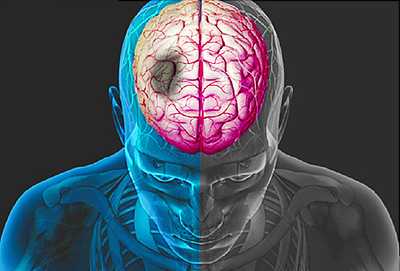- Home
- Editorial
- News
- Practice Guidelines
- Anesthesiology Guidelines
- Cancer Guidelines
- Cardiac Sciences Guidelines
- Critical Care Guidelines
- Dentistry Guidelines
- Dermatology Guidelines
- Diabetes and Endo Guidelines
- Diagnostics Guidelines
- ENT Guidelines
- Featured Practice Guidelines
- Gastroenterology Guidelines
- Geriatrics Guidelines
- Medicine Guidelines
- Nephrology Guidelines
- Neurosciences Guidelines
- Obs and Gynae Guidelines
- Ophthalmology Guidelines
- Orthopaedics Guidelines
- Paediatrics Guidelines
- Psychiatry Guidelines
- Pulmonology Guidelines
- Radiology Guidelines
- Surgery Guidelines
- Urology Guidelines
Post stroke rehabilitation care- US guidelines

The U.S. Department of Veterans Affairs (VA) and U.S. Department of Defense (DoD) has released an update of the joint clinical practice guideline for rehabilitation after stroke. The guideline recommendations provide evidence-based guidance for the rehabilitation care of patients after stroke. The recommendations are applicable to health care providers in both primary care and rehabilitation. The same has been highlighted in the Annals of Internal Medicine.
Stroke affects nearly 800 000 individuals annually in the United States. Approximately 75% of these are first-ever strokes, whereas the remaining 25% are recurrent strokes. It is no more a disease of the elderly and can occur at any age. Approximately 10% of all strokes occur in individuals aged 18 to 50 years.
Here are some of the key recommendations:
- Stroke rehab should begin as soon as the patient is medically stable. Rehabilitation in an organized inpatient stroke unit is associated with a greater likelihood of the patient being discharged home.
- Cardiovascular training, and walking in particular, can improve walking speed post-stroke and is associated with little harm.
- Selective serotonin reuptake inhibitors (SSRIs) or serotonin-norepinephrine reuptake inhibitors (SNRIs) can help treat new-onset depression after stroke. They are not, however, recommended for preventing depression, owing in part to concerns about fracture risk with SSRIs.
- Cardiorespiratory training, repetitive task training, and transcranial direct current stimulation (tDCS) may improve activities of daily living in adults who have had a stroke, according to a review that supported recent Veterans Affairs (VA) guidelines.
- Cognitive behavioral therapy, exercise, and selective serotonin reuptake inhibitors (SSRIs) may reduce symptoms of poststroke depression, but SSRIs were not found to prevent depression or improve motor function, according to the systematic review.
- Cardiorespiratory training, repetitive task training, and transcranial direct current stimulation (tDCS) may improve activities of daily living in adults who have had a stroke, according to a review that supported recent Veterans Affairs (VA) guidelines.
- Cognitive behavioral therapy, exercise, and selective serotonin reuptake inhibitors (SSRIs) may reduce symptoms of poststroke depression, but SSRIs were not found to prevent depression or improve motor function, according to the systematic review.
Overall, the guidelines include 42 recommendations. They also offer two useful algorithms that outline patient management from the presentation with stroke symptoms through discharge from outpatient rehab. the 2019 VA/DoD CPG provides recommendations and clinical algorithms for poststroke rehabilitation care delivery with a focus on 6 key areas, including the timing of rehabilitation treatment; motor therapy; assessment, management, and treatment of dysphagia; cognitive rehabilitation approaches, speech and sensory therapy; mental health treatment; and community reintegration. Poststroke rehabilitation requires an interdisciplinary holistic approach to the management, treatment, and rehabilitation of poststroke sequelae, with the patient and family as vital members of the team.
For further reference log on to :
Annals of Internal Medicine clinical guideline synopsis
Next Story
NO DATA FOUND

Disclaimer: This site is primarily intended for healthcare professionals. Any content/information on this website does not replace the advice of medical and/or health professionals and should not be construed as medical/diagnostic advice/endorsement or prescription. Use of this site is subject to our terms of use, privacy policy, advertisement policy. © 2020 Minerva Medical Treatment Pvt Ltd